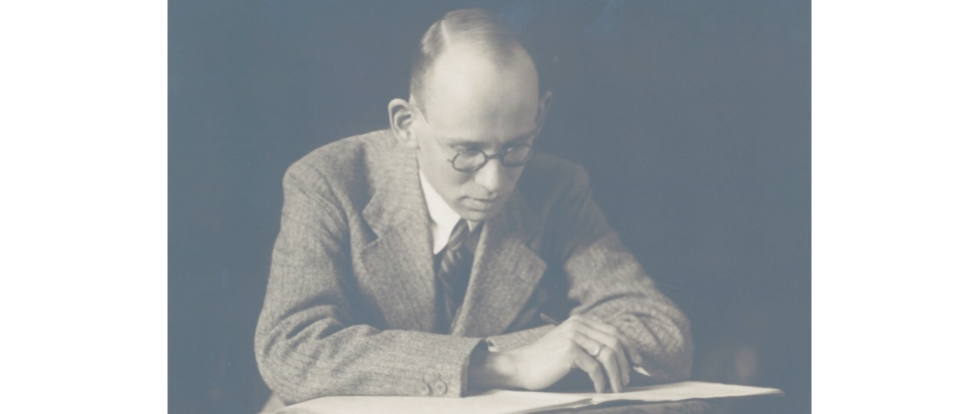Walter Bricht, composer, pianist and teacher was born in Vienna, Austria on September 9, 1904. Bricht was exposed to mutiple musical influences from his youth. His father, Balduin Bricht, was a music critic for the Volkszeitung, a newspaper in Vienna. His mother, Agnes Pylleman Bricht was a famous concert singer and pianist, and became his first teacher. His remarkable talent was recognized early on. Still nearly a toddler, he informed his parents "the door squeaks in Eb." Bricht received his first piano lesson at age four, and began composing piano pieces and songs by age twelve. He was educated at the Vienna Academy for Music, graduating in 1928 with degrees in composition, conducting and piano, and was a favorite student of famed composer Franz Schmidt.
Upon the completion of his education at the Vienna Academy, Bricht taught at the Vienna Conservatory from 1931 to 1938. From 1934 to 1938, he also taught voice, piano, and composition at the Horak-Schulen in Vienna. As a composer, he was prolific during this period, writing the majority of his works, and hearing many of them publicly performed. He was also active as a conductor. In 1938, Bricht was forced to leave Austria, because the Nazi regime had discovered that he had Jewish-born grandparents. He was offered an "honorary Aryan-ship" by Hitler, providing he would swear allegiance to the Nazi party, but instead chose to emigrate to the United States. All of his important papers and letters of recommendation were confiscated at the border, and he arrived in the U.S. not speaking a word of English.
Upon his arrival in the U.S., Bricht settled in New York, earning a living by serving as church organist, accompanying and coaching. In 1939, Bricht joined the faculty of the Mason College of Music in Charleston, West Virginia, becoming chairman of the music department the following year. He met his future wife, Donna Kuhn after hiring her as a professor of violin. Bricht returned to New York in 1944, teaching and coaching there until 1963. He also made regular trips to Washington D.C., to teach members of the U.S. Army Chorus. Two daughters were born to the Brichts during this period, Dana Eve (1955), and Wendy Diane (1959).
In 1963 Bricht was invited to become a professor at the Indiana University School of Music. He was hired as a professor of piano, however, by 1967, he was teaching applied voice and song literature exclusively. He wrote three compositions while at Indiana University, the Sonata for Flute and Piano (1964), the Chaconne for String Quartet (1967), and the Trio for Flute, Cello and Piano (1968). In 1967, an entire recital devoted to his compositions was performed at the I.U. School of Music to much acclaim.
